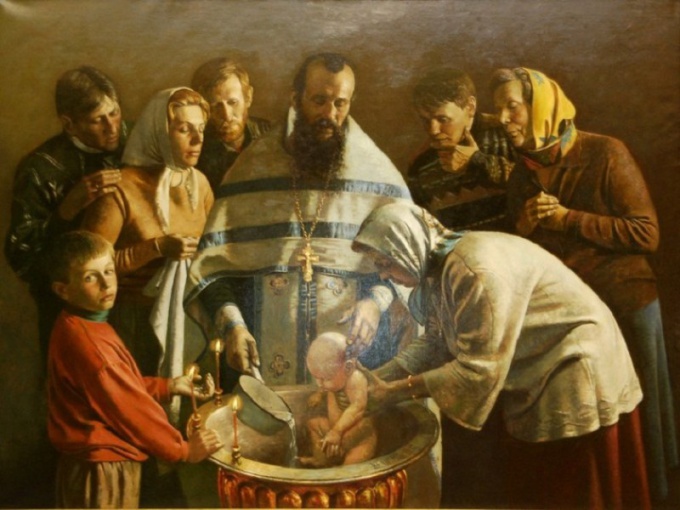In pagan times list of personal names was limited by the canons. As the name might used the visual characteristics of the child, the attitude of family members to the baby, even the ordinal position of birth. So the name "Devyatko" very few people can surprise, and a little blond girl named Svetlana (Svetlana) were found in every Slavic village.
With the adoption of Christianity, children were to name the names of the Holy martyrs, the number of which at first was insignificant. Therefore, there were numerous Ivans, Mary, Anna.
Throughout most of the twentieth century about the calendar not recalled, and the names were given in accordance with fashion, in honor relatives or famous people.
But the last decade has seen a growing interest in traditions and, in particular, to the criticism of children according to the calendar.
The calendar, a calendar is a kind of calendar of commemoration of saints. Each day has several names. It is believed that the birthday child to him down one of these saints and is preparing to become his guardian angel. It is therefore important that the child's name matched one of the names of the Holy martyrs of this day.
Throughout the history of Christianity the calendar was filled with new names, mostly Greek, Latin, Hebrew origin. His saints in Russia was not, as the Gentiles could not become Christian martyrs. But old Slavonic names, however, there are, for example, Lyudmila even mentioned twice.
The problem is not simple, considering that many modern, secular names, or is not in the calendar, or they are in original sound without translation.
A paradoxical situation, when the girls, named in honor of the most famous martyrs – Faith, Hope and love, can't get that name at baptism, because in Orthodoxy there is just not quite harmonious Greek originals, Pistis, Elpis and Agape. And only the original name of the mother of Sophia (Wisdom) was more acceptable as a name.
Among the clergy there is no consensus about this. Some are willing to call the child by his secular name, others give the baptismal name of the nearest Holy, and others offer parents the choice of a few options which best fit the accord.
Svetlana is a Slavic name that in meaning "light" in the calendar corresponds to Photinia (26 Feb) or Fotina (April 2).
With the adoption of Christianity, children were to name the names of the Holy martyrs, the number of which at first was insignificant. Therefore, there were numerous Ivans, Mary, Anna.
Throughout most of the twentieth century about the calendar not recalled, and the names were given in accordance with fashion, in honor relatives or famous people.
But the last decade has seen a growing interest in traditions and, in particular, to the criticism of children according to the calendar.
What is the calendar
The calendar, a calendar is a kind of calendar of commemoration of saints. Each day has several names. It is believed that the birthday child to him down one of these saints and is preparing to become his guardian angel. It is therefore important that the child's name matched one of the names of the Holy martyrs of this day.
Throughout the history of Christianity the calendar was filled with new names, mostly Greek, Latin, Hebrew origin. His saints in Russia was not, as the Gentiles could not become Christian martyrs. But old Slavonic names, however, there are, for example, Lyudmila even mentioned twice.
How to choose a baptismal name?
The problem is not simple, considering that many modern, secular names, or is not in the calendar, or they are in original sound without translation.
A paradoxical situation, when the girls, named in honor of the most famous martyrs – Faith, Hope and love, can't get that name at baptism, because in Orthodoxy there is just not quite harmonious Greek originals, Pistis, Elpis and Agape. And only the original name of the mother of Sophia (Wisdom) was more acceptable as a name.
Among the clergy there is no consensus about this. Some are willing to call the child by his secular name, others give the baptismal name of the nearest Holy, and others offer parents the choice of a few options which best fit the accord.
And how now to name Svetlana?
Svetlana is a Slavic name that in meaning "light" in the calendar corresponds to Photinia (26 Feb) or Fotina (April 2).
